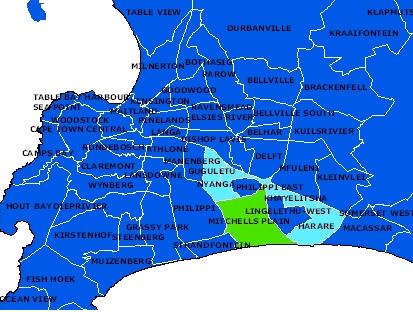South Africa Crime
Carjackings in South Africa
When you are moving to South Africa crime and safety will be a major concern. Of course, your and your family's personal safety takes priority when planning to move into unknown places. And if you believe the media reports especially foreign media, travelling or moving to South Africa is a risky adventure.
But trust us when living in South Africa, crime probably will not have to personally affect you, but you need to make your homework before venturing in any new territory. In our concise guide to staying safe in Cape Town, you will find some practical tips for your personal safety when holidaying or living in South Africa.
South Africa Crime: Truck and Car Hijackings in South Africa

Occasionally we hear truly unsettling stories about carjackings in South Africa and probably a look into the South African crime statistics does not really put your mind at peace. Still you need to have a look here nevertheless to know what I am talking about. Read more general information on crime in South Africa here.
As in many other parts of the world, cars are often popular targets for criminals and so cars are either stolen from your premises or hijacked at some often well known spots.
The most up-to-date official South Africa crime statistics from September 2015 tell about a steep increase in carjackings over the last year with close to 15,000 carjackings in South Africa. Fortunately, Cape Town is not hit as badly as many other parts of South Africa, especially Gauteng.
Theft of cars is 'big business' as almost every 9 minutes a car is stolen in South Africa.
Special safety precautions should be taken when driving in South Africa with special attention in some areas around Johannesburg and Gauteng. However, recently also some Durban areas were badly affected by this type of crime.
Which cars are targeted in carjackings in South Africa?
According to an article in the Mercury Newspaper in 2010, the most popular cars taken in car hijackings in South Africa are:
Toyota RunX, Toyota Hilux, Toyota Corolla, Opel Corsa bakkies, VW Polo, VW Golf and Isuzu bakkie.
An increase in stolen cars of lower value was noted as well as a decrease in hijackings of large SUV’s (Sports Utility Vehicles). This could be because the more expensive cars are often fitted with highly sophiticated car tracking systems and are easier to notice. However, luxury cars as well as older cars (between 7 and 20 years old) remain the main targets.
According to Police Spokesman Jay Naiker: 'It seems that people are hijacking vehicles because they need transport or want to go on a joy ride. In some instances, they only hijack vehicles so that they can remove the sound systems or other valuables.' He also added that most of the cars were recovered also soon after being hijacked. Also 'there is a trend towards the theft and hijacking of commercial rather than passenger vehicles. Certain models of Toyota Hilux are popular because of the ability to use the engine in Toyota Quantum taxis, the Nissan 1400 is continually popular because it is very simple to steal, the Hyundai H100 is popular, and the Toyota Siyaya minibus taxi."
South Africa Crime Hotspots: Where are the most dangerous car hijacking hotspots?
According to the police statistics on south Africa crime, current hijacking hot spots in KwaZulu Natal include Pinetown, Bayview, Chatsworth and with a recent spike of carjackings in Durban's CBD.
In the Gauteng the hotspots are around Johannesburg Central, Booysens, as well as Bramley, Sandrinham and Sandton. Germiston and Benoni are high risk areas as well.
Carjacking Hotspots in Cape Town
In the Western Cape carjackings are luckily not happening near as much as in the other two provinces. But around Cape Town the most risky areas are: Mitchells Plain, Khayelitsha, Nyanga and Gugulethu.
But these are areas where most of the crime happens in Cape Town and these are areas which you should avoid for various reasons. Just go in with people who know these areas and townships well.
Here is a map of the Cape Town areas where most of the carjackings occured in the last year according the South African Police.

Where and when to take extra caution regarding carjackings?
Take the points below into account when making your plans or going out. For example allert your armed response team to meet and greet you at your house when coming home on Friday night.
- Be careful when going home from collecting a meal at a take-away outlet and dining at restaurants, especially on Friday and Saturday evenings when hijackers most often take the vehicle when you arrive at home and they also rob the household.
- Take extra care at petrol stations and garages as well as supermarkets and convenience stores as these are often used by hijackers and thieves to spot targets.
- Beware that some special customised number plates, such the individualised WP plates, may attract hijackers.
- Weekends, especially Friday and Saturday evenings most hijackings and most of the South Africa crime happens
Recommended Resources: How to avoid and how to deal with hijackings?
- Safety Awareness Information supplied by SAPS: How to behave during hostage and hijack situations
- The National Hijack Prevention Academy (NHPA) offers training courses and has got a great nine page document with lots of useful information on Hijacking for free download on their website. Check out this most useful infomation with plenty of tips and advice by the NHPA
If you would like to get more insider tips, make sure you subscribe to our ExpatCapeTown Newsletter here.


